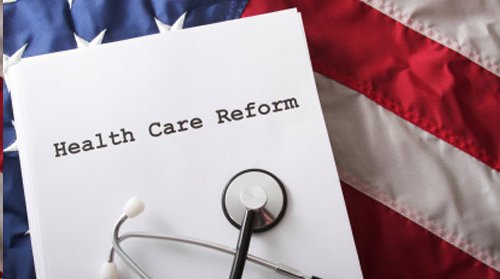Affordable Care Act Provides Relief for Mental Health Patients

From our content partner, New America Media:
SAN DIEGO, Calif. – Like most severely mentally ill patients, 23-year-old Daniel Padilla doesn’t see himself as that.
The insurance companies that cover him – Medi-Cal (California’s name for Medicaid, the federal-state-funded insurance for low-income and disabled people) and United Health Insurance -- don’t see the schizophrenia he was diagnosed with at age 19, as deserving the same benefits as someone with a medical condition.
His father, Benito, must go after the insurers month after month to get them to pay Padilla’s psychiatrist to keep his schizophrenia under control.
“The insurers approve three visits and then they put you through hell,” asserted San Diego-based psychiatrist Dr. Rodrigo A. Muñoz, who has been treating Padilla all along.
“Insurers discriminate against people who are mentally ill,” Muñoz said.
But that’s all going to change soon. When the historic Affordable Care Act fully unrolls on Jan. 1, 2014, it will require insurers to offer mental health care benefits equal to physical health benefits. In other words, a disorder in the brain will be treated no differently than one in the kidney, Muñoz said.
Not just people with mental disorders, but those with substance use disorders have encountered penny-pinching annual and lifetime caps on coverage, higher deductibles, or simply no coverage at all.
Federal Parity Law
The blatantly discriminatory practices by health insurance companies prompted Congress in 2008 to pass the Mental Health Parity and Addiction Equity Act (MHPAEA), which mandated that psychiatric illness be covered just the same as other medical illnesses. It required insurers to offer the same annual and lifetime dollar limits for mental health care as for medical and surgical care.
But the law applies only to larger employers – those with 50 or more workers – that offered a health plan that covered mental health and substance abuse. Smaller employers, as well as people who buy their own insurance, are excluded from the benefits of the law.
“Smaller employers have resisted changing the law, saying they will go broke” if they had to include mental health coverage in their health care plans, Muñoz pointed out.
The ACA has extended the MHPAEA provisions to state insurance exchanges, known as Covered California in this state. This would require policies purchased by smaller employers and individuals through the exchange, as well as those purchased outside of it, to be MHPAEA-compliant.
Had the MHPAEA mandated universal psychiatric benefits when it was created, insurers like Padilla’s would not have been able to discriminate between the treatment of psychiatric and non-psychiatric medical illnesses, he said.

Only a Fraction of the Mentally Ill Get Treatment
Dr. Clayton Chau, who practices psychiatry in Orange County, Calif., said that because of the discrimination factor, poor access to care and inadequate insurance coverage, only a fraction of those with mental illness get treatment.
A report by the Surgeon General indicates that one in four Americans has a diagnosable mental illness at any given time. National and international studies show that 1 percent of the general population has schizophrenia, an illness that is treatable, though not curable. Surveys, including those done by the National Institutes of Mental Health, show that only about 50 percent of Americans seek psychiatric treatment.
According to Randall Hagar, director of government relations with the California Psychiatric Association, a state mental health parity bill signed by Gov. Davis in 2000 required insurers to cover the diagnosis and treatment of a range of mental illnesses under “the same terms and conditions applied to other medical conditions.” The intent of the law was to eliminate the disparity in co-pays and higher deductibles.
In the opinion of many advocates, Hagar observed, the law is “routinely violated by plans and insurers, and enforcement is generally weak.”
That prompted Sen. Jim Beall, D-Campbell, to try five times to give more teeth to federal and state mental health parity laws. Beall’s first four bills were vetoed by Gov. Schwarzenegger, and his most recent bill (SB22) didn’t even make it out of committee.

What the Health Care Law Will Do
Under the ACA, aka Obamacare, health insurers are forbidden from excluding people with pre-existing illness from medical coverage. By definition, Americans with a mental illness have a pre-existing disorder, and up until now, private health insurers have denied with impunity coverage to those with pre-existing conditions.
California has added a mental health component to its expanded Medi-Cal program, under ACA, to ensure that its Medi-Cal population with mental disabilities receives more comprehensive mental health benefits, starting Jan. 1, 2014.
The current mental health component of Medi-Cal “is limited in terms of the number of providers and the number of services” it offers, Chau said.
Older people with mental illness will also benefit from the ACA because the law will close the notorious “donut hole,” allowing the Medicare population to not have a break in medication.
Padilla, who’s currently working for his GED, has been able to stay on his father’s insurance because of his age. A provision in the ACA allows children under 26 to remain on a parent’s insurance plan.
Muñoz is relieved that the ACA will help patients like Padilla access the care they so badly need. The removal of lifetime caps by insurance companies will enable mentally ill patients to access care before turning to suicidal thoughts, becoming violent or ending up homeless, he said.
Photos: New America Media; Mark Turnaukas (Flickr).





























































































































































































































































































































